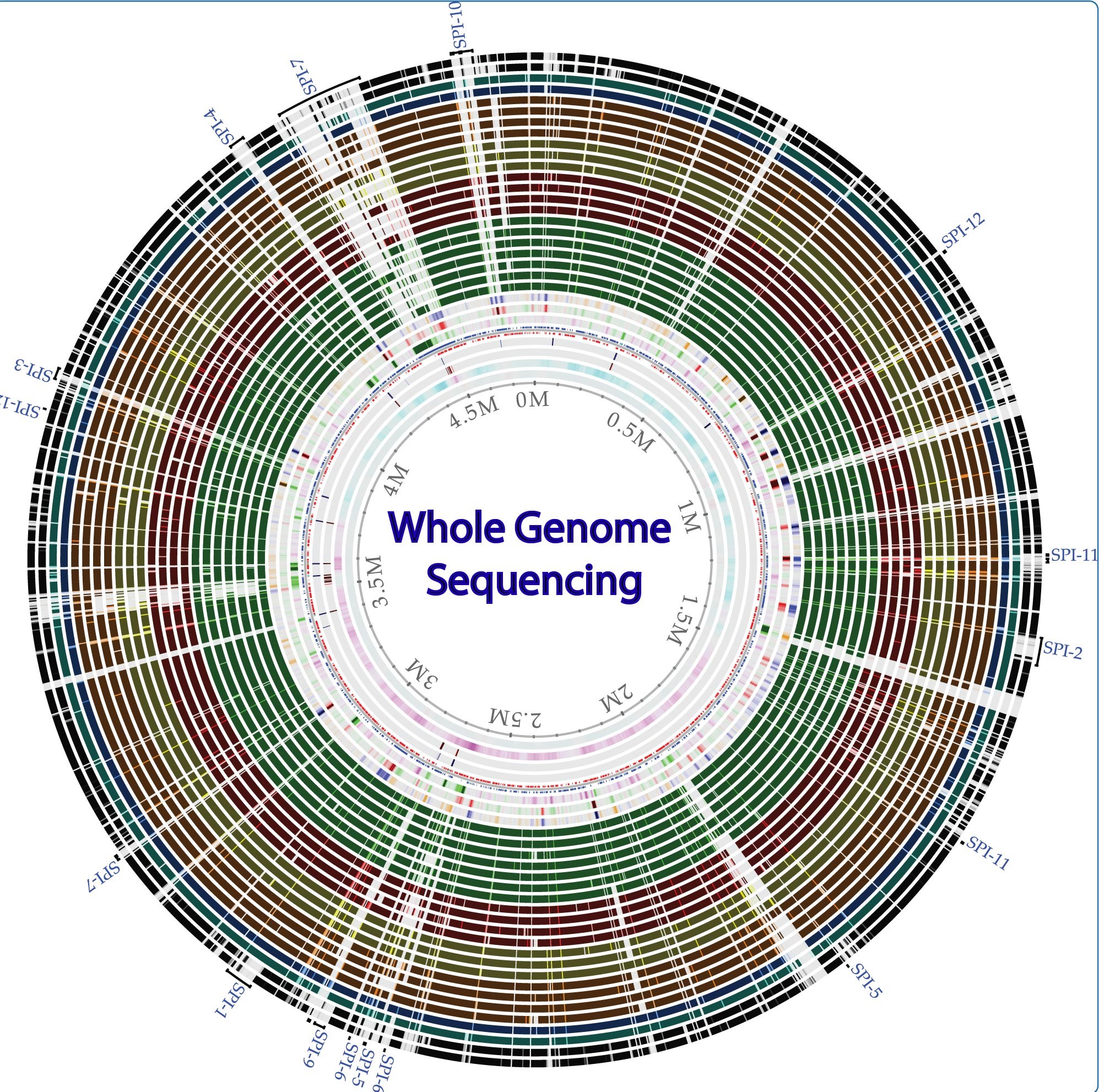Full 3 day workshop program:
Wednesday 22nd June 2022
9.00 - 9.30 Welcome and introduction, Pimlapas Leekitcharoenphon (Shinny)
9.30 - 11:00 Sample to sequencer process (what is WGS, which technologies are available, how to prepare samples including DNA extraction and library preparation based on the chosen technology) and experimental design, Saria Otani
11:00 - 12:30 Illumina (MiSeq and NextSeq) sequencer output: dos and and don'ts (fastq and fasta files, quality of the sequence data, trimming, de novo assembly and reference mapping, quality of the assembly, troubleshooting in case of poor quality, storage of sequence data), Pimlapas Leekitcharoenphon (Shinny)
12:30 - 13.30 Lunch
13.30 - 15:00 Species identification: Mapping using KMA (K-mer alignment), Pimlapas Leekitcharoenphon (Shinny)
15:00 - 16:00 Subtyping Methods and MLST, Pimlapas Leekitcharoenphon (Shinny)
Thursday 23rd June 2022
9:00 - 11:30 Antimicrobial resistance and ResFinder, Jette Kjeldgaard and Pimlapas Leekitcharoenphon
11:30 - 12:30 Plasmid and pMLST, Pimlpas Leekitcharoenphon
12:30 - 13:30 Lunch
13:30 - 16:00 Cluster analysis (SNP tree, cgMLST) and construction/visualization of phylogenetic trees, Pimlapas Leekitcharoenphon
Friday 24th June 2022
9:30 - 10:30 Cluster analysis (SNP tree, cgMLST) and construction/visualization of phylogenetic trees (cont), Pimlapas Leekitcharoenphon
10:30 - 11:30 Making your own gene database (MyDBFinder), Pimlapas Leekitcharoenphon
11:30 - 12:30 Nanopore (MinIon) sequencer output and applications, Malte Bjørn Hallgren
12:30 - 13:30 Lunch
13:30 - 14:30 Introduction to metagenomics for clinical diagnostic and food, Pimlapas Leekitcharoenphon (Shinny) and Joseph Donald Martin
14:30 - 15:30 Incorporation of WGS and Machine learning for risk assessment and source attribution, Patrick Njage
15:30 - 16:00 Course conclusions, Pimlapas Leekitcharoenphon
Venue
DTU Lyngby
Kemitorvet
Building 202
2800 Kgs Lyngby
Room 8003
---------------------------------------------------------------------------------
Whole genome sequencing analysis for microbial diagnostic, identification and cluster analysis
22nd – 24th June 2022
DTU, Lyngby
The needs for the WGS training
Currently, in research institutes, hospitals and industries, the use of WGS is an area of key interest for scientific officers/researcher. WGS is being used/could be used in several applications for different purposes which include, e.g. outbreak investigations (strain characterization and clustering analyses), antimicrobial resistance (AMR) monitoring (strain characterization including detection of resistance genes, plasmids and AMR prediction), also for regulated products, including the characterization of microorganisms used as or producers of food or feed additives (e.g. food enzymes, novel foods, fermenters) and or/ biopesticides (species identification, strain characterization, detection of AMR, virulence and toxin production and other metabolites), and the diagnostic of microbe in clinical setting.
It has been recognised the need to increase the knowledge on WGS data analysis so that scientific officers/researchers can enhance their critical ability and competence to use WGS data for specifically in the microbial area.
Objectives
With the training, we should get some knowledge on:
- the methodologies for sequencing, data processing, experimental design, assessing the quality of the methodology and the datasets, quality parameters, calculation of average read depth/minimum read depth, assembling and analysing the sequences (e.g. gene finding), SNPs and gene by gene based clustering), and the possibilities to apply it in risk assessment, surveillance, diagnostic and characterization for microorganisms, (e.g. taxonomy/identification of the microorganisms, antimicrobial resistance and virulence characterization, outbreak investigations).
- the process, the type of bioinformatic tools available, what information we may retrieve from the sequence analysis, gene detection, sequence alignment tools and the advantages and limitations in using the WGS approach.
- the critical aspects to focus when using WGS and main uncertainties associated.
Structure and content:
The training is for 3 days. It shall consist on lectures and hands-on training, with an interactive and learner-centred approach, with a right balance between fundamentals notions, theory and practical elements (e.g. 1.5-2h and 1.5-1h respectively). Most of the bioinformatics tools used in the training is web-based tools. Therefore, there is no need to have strong bioinformatics background to attend the training. In addition, you will use your own computer during the training for computer exercises.
It shall include:
- Theoretical lessons: e.g. 1.5-2/3 of the duration of the course:
- WGS fundamentals: what is WGS, main use, sequencing strategies, sample/library preparation, experimental design, different types of bioinformatics tools (online, web-based tools), new developments, data sharing, etc.
- WGS Microbial: what is the process, which are the tools considering, for e.g.: species identification, trimming, assembly, quality assessment, species identification, gene detection (different strategies for alignment and/or mapping), annotation, SNPs detection, gene by gene analysis, clustering, data visualisation).
- WGS practical/hands on lessons: e.g.1.5-1/3 of the time of the course:
- Sessions on raw data processing, quality statistics, interpretation of data, e.g. quality, antimicrobial resistance, virulence, phylogeny.
The target group for the training (15-25 participants) would be scientific officers, staffs and researchers from various area of work, who are dealing or could deal with WGS-generated data to perform risk assessment, surveillance, diagnostic and characterization of microbiology (including data collection, analysis or interpretation of results).


